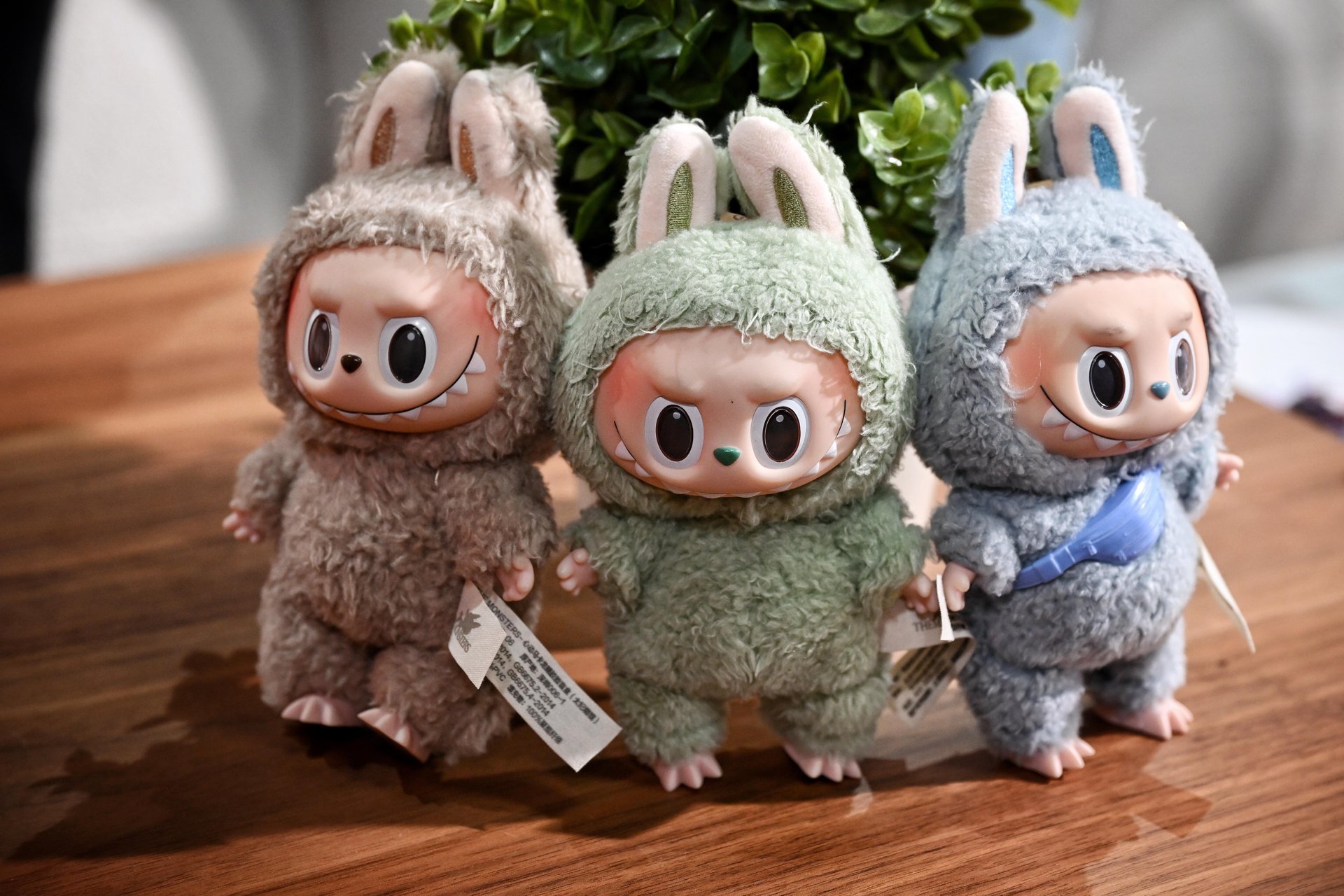Culture Craze
Labubu Dolls and Baptism: Inside the Viral Controversy

From art toy to viral obsession
Labubu dolls were never meant to stir up spiritual debate. First created in 2015 by Hong Kong artist Kasing Lung, the quirky, sharp-toothed characters became global collectables thanks to their blind-box packaging and playful monster design. In recent years, they have exploded into pop culture through keychains, toys, and resales that fetch hundreds or even thousands of rands online.
But in 2025, Labubu’s rise took a strange turn. Social media users began linking the dolls to Pazuzu, a demon from Mesopotamian mythology. Almost overnight, videos began appearing of people baptising their dolls or, in more extreme cases, burning them to keep supposed dark forces at bay.
View this post on Instagram
Baptisms, blessings and backlash
On Instagram, radio hosts Brendan Jones and Amanda Keller joked about the craze, saying people were “baptising their Labubu dolls to get rid of the demon.” What started as humour quickly revealed a divide.
Some collectors claim baptising the dolls makes them feel safer, treating it more like a blessing. Others see the ritual as a mockery of baptism, with critics accusing participants of trivialising faith. One user called it “diabolical,” while another quipped that people were more willing to baptise toys than themselves.
The reactions highlight how fast internet culture can blur the lines between superstition, satire, and genuine belief.
@flower86216 #god #baptism #labubu #childofgod #part1 ♬ Praise (feat. Brandon Lake, Chris Brown & Chandler Moore) – Elevation Worship
Fake toys, real risks
While the baptism debate captures headlines, consumer safety bodies are sounding the alarm on a different threat: counterfeit Labubu dolls. The UK’s Chartered Trading Standards Institute has warned that fakes are spreading rapidly on the back of TikTok trends and celebrity endorsements.
These imitations are not just cheap copies. They can be dangerous, with detachable parts such as eyes, hands, and feet that pose choking hazards for children. Reports also point to loose stitching, exposed stuffing, and toxic dyes, even traces of lead, in some knock-offs.
To stay safe, buyers are urged to stick to trusted retailers and check for authenticity markers like holographic stickers, QR codes, and UV stamps.
@tybottofficialLABUBUS ARE DEMONIC
More than a meme
The Labubu saga reflects the power of viral culture to transform an art toy into a lightning rod for controversy. For some, baptising a doll is a harmless reassurance. For others, it feels like sacrilege. For regulators, though, the real demon is the counterfeit industry putting children at risk.
What is clear is that Labubu has gone beyond being a quirky collector’s item. It now sits at the crossroads of pop culture, faith, internet humour and global consumer safety, a reminder that even the strangest trends can say something serious about the world we live in.
Also read: Enhle Mbali Sparks Outrage After Using Apartheid-Era Slur At Carlton Hair Event
Follow Joburg ETC on Facebook, Twitter, TikT
For more News in Johannesburg, visit joburgetc.com
Source: IOL
Featured Image: Her World















